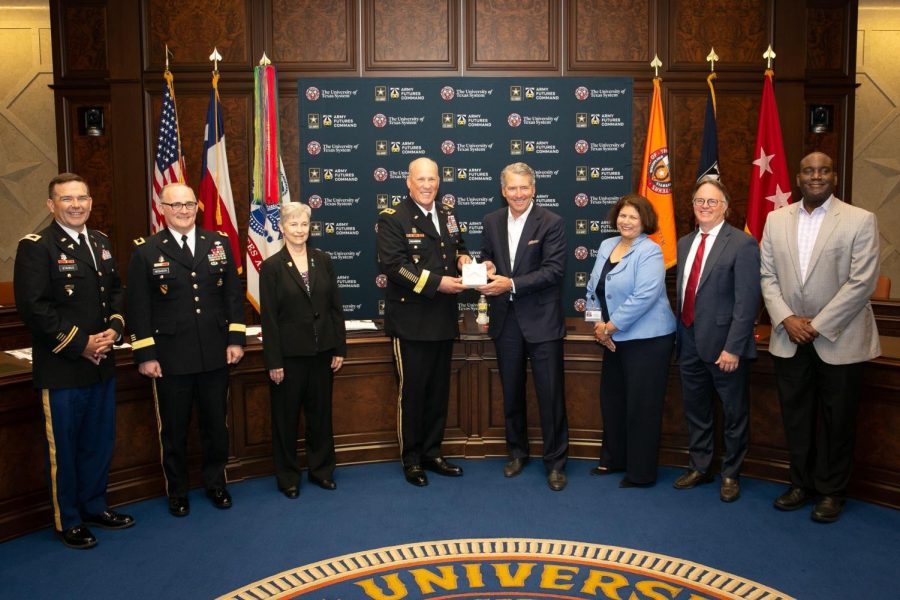UT System, U.S. Army partner to improve trauma care
April 27, 2022
The UT System and the U.S. Army plan to advance trauma care science and technology to help both injured soldiers on the battlefield and hospital patients through a new collaboration between the two institutions.
The two parties signed an agreement April 20 to formalize the partnership, which will give both institutions access to unique resources and opportunities, said Mark Stackle, commander for the U.S. Army Institute of Surgical Research. The research will focus on the six pillars of combat casualty care developed by the USAISR, which include technology, organ dysfunction, wound progression and infection, and other aspects vital to trauma care, Stackle said.
“(The collaboration) allows us to have a closer partnership with one of the premier educational organizations in the country,” Stackle said. “There’s a wealth of expertise and knowledge and, frankly, the capability to do some pretty amazing research.”
David Lakey, the chief medical officer at UT Systems, said the discoveries and advancements found through the partnership will benefit soldiers who experience wounds on the battlefield in addition to civilians hurt in events like car accidents.
“The number one cause of death for individuals less than 44 is trauma,” Lakey said. “So whether it’s gunshot wounds or motor vehicle accidents, trauma has a huge burden.”
Jayson Adelotte, a trauma surgeon and associate professor of surgery at Dell Medical School, said in an email that civilian partnerships, research and development of life-saving technologies are important to improving trauma care.
“This partnership is aimed at making the immediate, life-threatening issues surrounding the care of the injured patient safer and more efficient — things like controlling bleeding and managing the immediacy of life-threatening issues,” Adelotte said.
Lakey said in addition to the shared research between the two institutions, students in the UT System will have access to more research opportunities.
“We can now put our students in (the Army’s) laboratories and they can have their faculty in our laboratories,” Lakey said. “We can exchange critical research equipment in order to foster that kind of relationship and move research forward.”
Stackle said he hopes the AFC maintains a continuous working relationship with UT Systems to improve trauma care for both soldiers and civilians.
“I’m incredibly optimistic that this partnership is really going to set both organizations up for some long-term success,” Stackle said.



